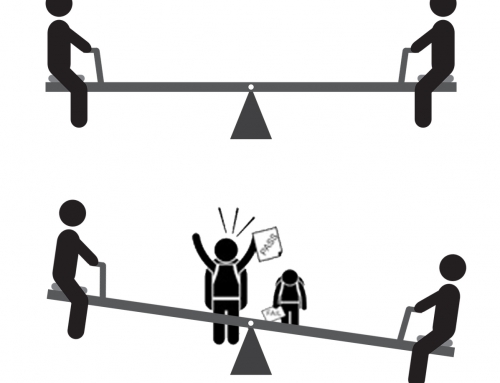The coronavirus pandemic has forced the cancellation of most formal exams, yet the 11-plus is expected to go ahead, with most areas pushing the test back a few weeks to October. But did you know that in some selective areas children sit two 11-plus tests when one would do?
It seems particularly cruel to put children through this in a pandemic year when exams involve extra stress and uncertainty, along with a need for social distancing and aims to avoid public transport. No child really ‘needs’ to sit a flawed and unnecessary 11-plus exam, but six grammar schools in Kent run additional 11-plus tests for extremely dubious reasons.
There is a strong correlation between social class and attainment, which has been proved in numerous studies. It’s why 11-plus testing causes a social divide wherever it exists. One side effect of this correlation is that in areas of high deprivation few children pass the 11-plus. So, in some deprived areas of Kent not enough local children pass the county-wide ‘Kent Test’. The only way these grammar schools can fill their spaces is to run a second, easier, 11-plus test in their schools on a Saturday. These local tests select pupils a little lower down the attainment scale, so the schools are always full.
You might think that this a reasonable solution to a local problem, but it’s completely unnecessary! Some Kent grammar schools are ‘super selective’ and admit pupils of a higher attainment level by requiring admission with a higher qualifying score. So why don’t grammar schools that require a lower attainment level simply use a lower qualifying score instead of a regular pass mark? The Kent 11-plus pass score is often 320 points, so ‘super selective’ schools ask pupils to score 340 points to claim a place. Kent grammar schools in deprived areas could admit pupils with 300 points, or whatever score worked to fill their desks.
So why do schools bother with the palaver of running a whole different second test? The reason, is quite obvious, it’s pride. These grammar schools don’t want to show openly that their ‘standard’ is lower. There is a degree of deception built into their selection process. It pains them to admit that their pupils are less than the usual grammar school ‘standard’ so a second test disguises what’s going on.
These schools are quite prepared to fail pupils with their test and tell them they’re not fit to go to their school, but they’re not prepared to be honest and reveal that their pupils are not the same ‘standard’ as other grammar school kids.
The whole process of grammar school selection is distasteful. These schools are trusting unreliable test scores to assess children, when they surely know a one-off test at 10 years old is not very meaningful? They are also valuing some children as ‘better’ than others, more worthy to be educated at their schools, all based on some arbitrary decision about who ‘suits’ their establishment. But I find the idea of these schools running second tests particularly offensive, because they avoid saying why it happens, and it is clearly not in the best interests of the children.
It is ultimately about protecting their reputations, and avoiding the honest fact that they need to find children who are less ‘smart’ than an average grammar school child. It feels awful to talk about this… What is a ‘smart’ child after all? But you cannot talk about grammar schools without entering their odd world of ‘smart kids’ and ‘less smart kids’ and tests to find ‘slightly less smart kids’ than other tests. It truly is a horrible world, with labels for ten-year-olds, where no label is helpful. Yet grammar schools set their store by labels. A child with a ‘you deserve a grammar school’ badge is everything. You’re either in or you’re out. No wonder they don’t want to reveal that their standards slip around. You really can be a grammar school kid in one part of Kent, but you wouldn’t be in another. But shhh, this damages the grammar school brand..!
Of course, all these poor children, taking one test or two, are individuals, and so much more than a score.
So, why does it matter that some grammar schools make children sit two tests, when one could be made to do?
Here are a number of problems.
Grammar schools are vague about these ‘optional’ additional tests. Yet clearly the optimum strategy is to sit both the harder Kent Test (in primary schools on a weekday) and the easier own-school test (in the grammar school on a Saturday.) Inevitably some children will only sit the harder, more available, test in school. Many children who would qualify for a local grammar school place won’t get one.
The schools don’t have any simple, transparent, message on their website saying ,’take our school test, it’s easier.’ They usually stress that it’s wise to take both tests in their open evenings. So they’re selecting the kind of children who have parents who go to open evening talks, and are free on a Saturday. It’s a subtle way to select children with motivated parents.
The fact 10-year-old children are made to sit two 11-plus tests means two stressful exams. This is double the worry, two lots of ‘do your best’ and sleepless nights ahead of the test day. On top of this, the two different tests are by different companies, so parents need to buy both GL Assesment and CEM practice papers, for double doses of 11-plus practice.
The fact children are sitting two 11-plus tests means many children fail twice. This is completely unnecessary and clearly puts additional stress on children. It’s bad enough to fail once. If this awful test must go ahead we should minimise the distress it causes.
The fact one test is harder than the other means many children receive the confusing message of one pass and one fail. What are they supposed to make of that? Isn’t it simpler to just tell them a points score and explain why they qualified for one grammar school but not another?
The schools suggest their local tests select more disadvantaged pupils. This is disingenuous because it is not a test carefully designed to select poorer children. They are simply going lower down the attainment scale where more disadvantaged pupils cluster. If they go lower down the attainment scale with the Kent Test, offered in every primary school, they might find more disadvantaged pupils qualify.
It feels wrong that children in four Kent towns are forced to sit two tests, simply to spare the grammar school the embarrassment of revealing they have a lower entry standard. Kent County Council, and the schools, might not like having two grammar school standards within one test, they might not want to have a regular pass mark, and children going to grammar school with a lower points score. But what are people supposed to think of the whole second test game that goes on now? Isn’t it already confusing and lacking in common sense?
If everyone understands ‘super selective’ admissions with a higher score requirement, why wouldn’t they understand ‘less selective’ admissions with a lower score requirement? The schools could use a score plus distance to select only local pupils.
Six Kent grammar schools are making children sit two tests when one could be made to do. It’s a waste of education budget, putting on completely unnecessary £16,000 11-plus tests. But, more importantly, it’s putting children through stressful exams for no good reason. In this year where so many exams are cancelled it’s not right that the 11-plus goes ahead at all. But these six schools are taking it to a whole new level, they could drop an exam and still admit a selective intake, but they won’t do that. They are so keen to maintain the status quo that they’ll run 11-plus exams that have no need to go ahead.
Comprehensive Future is not set up to fix the flaws of the outdated selective systems running in counties like Kent, we want to see all 11-plus tests end. Yet no one is charged with monitoring the messy and untransparent selection methods used in selective areas, so I wanted to highlight this local problem.
The Kent grammar schools that run their own tests to select at a lower attainment level are Dover Grammar School for Boys, Dover Grammar School for Girls, The Harvey Grammar School, Folkestone Grammar School for Girls, Highsted Grammar School, and Mayfield Grammar school.
Our Future Thoughts series of articles are opinion pieces designed to provoke debate, they represent the views of the author and not Comprehensive Future policy.
Jo Bartley is a parent in Kent and Campaign Support Officer for Comprehensive Future. She is writing this in her personal capacity.




